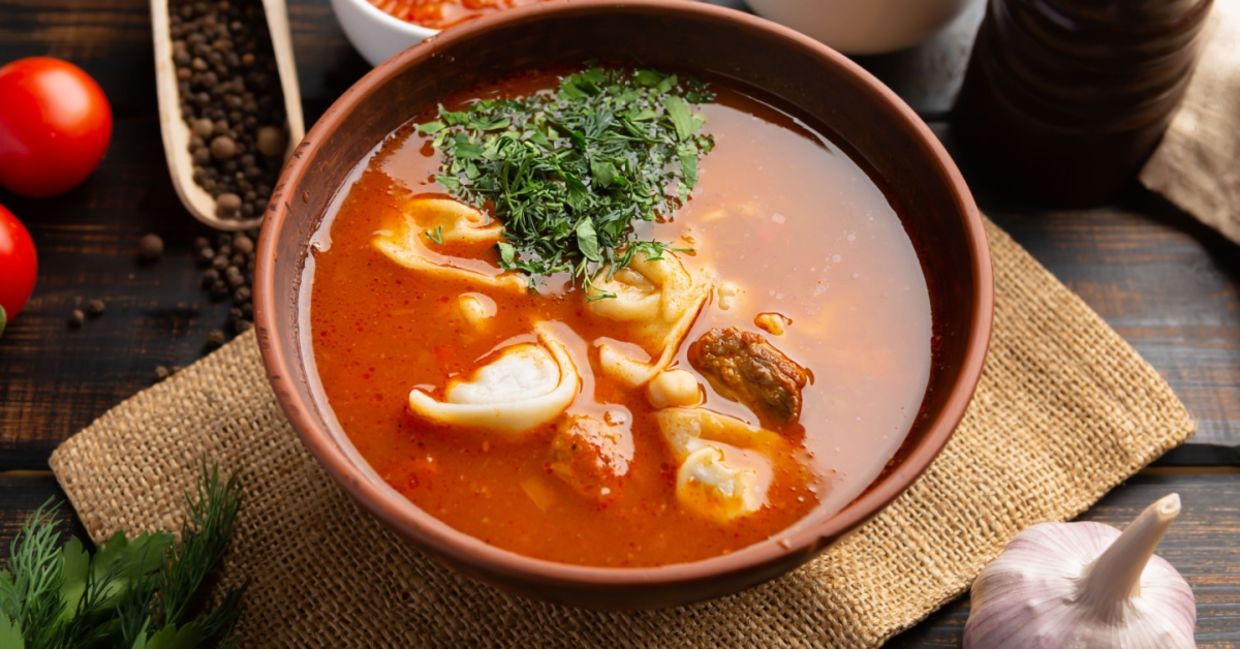
(Mikhail_Dragunov / Shutterstock.com)
Ravit Berdichesky’s son, Itay Berdichesky, and his wife, Hadar Berdichesky, were murdered by Hamas terrorists in their Kibbutz Kfar Aza home on October 7, The Times of Israel reports. Miraculously, their 10-month-old twins were found alive in a sealed room, surviving 14 hours on their own. Now, the twins are being cared for by their maternal aunt.
Ravit Berdichesky, along with her three surviving sons, struggles to find meaning amidst her profound grief. She also lost her husband, Ilan, in a cycling accident five years earlier.”I asked my brother, ‘How will I get up in the mornings?’ He replied, ‘You didn’t get up for Itay in the morning; you got up for yourself. That set the path for me,” Berdichesky told the Times of Israel.
Finding comfort in food and family stories
One source of solace has been Asif, a Tel Aviv culinary center dedicated to helping soldiers, survivors, the bereaved, and evacuees since October 7. Asif has initiated 'A Place at the Table,' a commemorative project that documents the favorite dishes of those killed, with recipes and stories written in Hebrew, English, and Arabic. “It’s a collection of stories that help families immortalize their loved ones. There’s a sense of mission in it,” Matan Choufan, senior director of content at Asif, explained.
Each week, Asif posts a new video on social media featuring a family member or friend speaking about a loved one killed on October 7, through the preparation of a favorite dish, along with the recipe. The dishes include the spicy fish dish that Shani Gabbay ate at her parents’ home in Yokne’am before heading to the Supernova, where she was killed, and the cream puffs that David Kachko Katzir would melt over every time his wife Ayelet made them.
Ravit shared Itay and Hadar’s story through two of their favorite dishes she often prepared for Shabbat dinner: a Hungarian layered meat dish called rakott káposzta for Itay, and tomato soup with dumplings for Hadar.The Hungarian sauerkraut casserole includes layers of cooked rice, chopped meat, turkey or chicken, and cooked cabbage, topped with sour cream. Ravit knows the layering process by heart. The tomato soup includes tiny dumplings slipped into the soup with a teaspoon or a piping bag, a technique introduced to Ravit by Itay years ago.
“When they came over on Friday nights, I would ask what they wanted me to prepare because I loved to spoil them, and we show love through food,” said Ravit. “Itay would say, ‘Only káposzta, Grandma’s dish.’”
The dishes are all family recipes passed down from Berdichesky’s Transylvanian paternal grandmother. Her own mother learned to make her husband’s family dishes, and the recipes are all written in her mother’s handwriting. It feels emotional to make those dishes now, Ravit said, who finds herself expecting to see Itay and Hadar walk into her home in Moshav Srigim in central Israel, south of Beit Shemesh.
The babies survived
On the morning of October 7, Berdichesky woke up to sirens but couldn’t contact Itay and Hadar. She later found out that Hadar’s last communication was at 6:55 a.m. Hadar had likely left the sealed room of their kibbutz house to toss a dirty diaper or prepare bottles for the babies. Her body was found in the kitchen, and Itay’s body was found in the sealed room, with their baby boys lying on the bed next to him.
Itay, the eldest of Berdichesky’s four sons, met Hadar through friends while in an officers’ training course for the Golani military infantry brigade. After completing his army service, he studied electrical engineering, and Hadar earned a degree in accounting. They moved back to Kibbutz Kfar Aza, where Hadar was born and raised, joining Hadar’s parents and three of her five siblings and their families. In December 2022, their twin boys, Roi and Guy, were born.
Berdichesky and her three surviving sons are working hard to continue their lives and being loving uncles to Roi and Guy. Her second-oldest son married a few months ago. ”They’re strong; they’re just sad,” said Berdichesky. “There are harder days and easier days, and for a second time, I chose life. It’s a matter of choice. I find the reasons.”
YOU MIGHT ALSO LIKE:
International Doctors Show Support for Israel During Challenging Times
Paws of Positivity: Specially Trained Dogs Lift Spirits in Israel
Artists Transform Lovelock Bridge to Advocate for Release of Israeli Hostages







